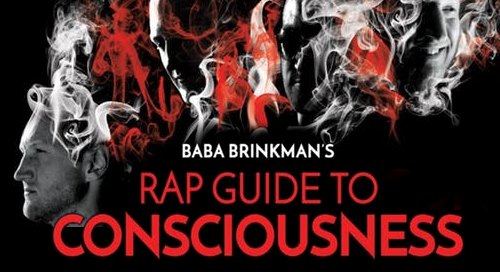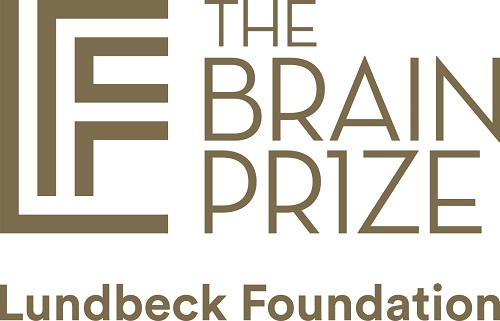Monday 15th April
Go to: Sunday 14th - Tuesday 16th - Wednesday 17th
MONDAY 15TH APRIL: PLENARY 08:30 - 09:30
P2: Essi Viding, University College London, UK
Why do some people become psychopaths?
8:30 -9:30, the Auditorium, CCD
MONDAY 15TH APRIL: SESSIONS 09.30 - 11.10
W2: President's session: Safeguarding credibility and reproducibility in neuroscience
Pia Rotshtein, University of Birmingham, UK - How study pre-registration can benefit neuroscience
Emily Sena, University of Edinburgh, UK - How & why to avoid risks of bias in preclinical neuroscience research
Verena Heise, University of Oxford, UK - An ECR'S guide to changing research culture
Marcus Munafo, University of Bristol, UK (chair) - Scientific Ecosystems and Research Reproducibility
S11: The neuroendocrinology of programmed rheostasis
Convened by the British Society for Neuroendocrinology
Tyler Stevenson, University of Aberdeen, UK (co-chair) - The role of thyroid hormone for long-term energy balance
Jaclyn Schwarz, University of Delaware, US - Impact of early-life immune activation on long-term immune function and the ontogeny of learning in males and females
Denise Hough, University of Glasgow, UK (co-chair) - Long-term regulation of steroid hormone biosynthesis
Jonathan Perez, University of Glasgow, Extra-retinal regulation of avian reproduction: a role for va-opsin and neuropsin
Catherine Hume, University of Edinburgh, In vitro optogenetic stimulation of vasopressin retinal ganglion cell axons in the hypothalamic suprachiasmatic nucleus
S12: Cognitive ageing: Inflammatory mechanisms driving changes in brain plasticity
The 'Neuronal Signaling' symposium, supported by Portland Press
Convened by Neuroscience Ireland
Yvonne Nolan, University College Cork, Ireland (co-chair) - Chronic hippocampal inflammation and cognitive decline: neurogenesis-mediated mechanisms
Annamaria Cattaneo, IRCCS Fatebenefratelli Brescia, Italy - Role of the gut microbiome and inflammation in Alzheimer Disease
Sandrine Thuret, King’s College London, UK - Alteration of Hippocampal Neurogenesis by the human systemic milieu: A biomarker of cognitive aging and dementia
Aine Kelly, Trinity College Dublin, Ireland (co-chair) - Regular physical activity protects against cognitive ageing: assessment of underlying anti-inflammatory mechanisms
S13: Characterizing addiction using neuroimaging
Jeff Dalley, University of Cambridge, UK (co-chair)
Wolfgang Sommer, Mannheim CIMH, Germany - Developing better treatments for relapse prevention using a systems biology approach
Louise Paterson, Imperial College London, UK - Potential of NK1 antagonism to treat addiction in man
Rebecca Elliott, University of Manchester, UK (co-chair) - Role of DRD3 and modulation of reward in treating addiction in man
S14: Lifespan development in individuals with Down syndrome and the potential of trisomy 21 as a biological model for the causes of Alzheimer's disease
Convened by Alzheimer’s Research UK
Hana D'Souza, University of Cambridge & Birkbeck, University of London, UK (co-chair) - The importance of understanding individual differences in infants and toddlers with Down syndrome
Andre Strydom, King's College London, UK (co-chair) - Prodromal features of Alzheimer's disease in Down syndrome
Niamh O’Brien, Queen Mary University London, UK - Human chromosome 21: Genes as modulators of APP-driven Alzheimer pathology
Frances Wiseman, University College London, UK - Trisomy 21 causes a deficit in lysosomal cathepsins and alters APP/Aβ processing, independently of an extra copy of APP
S15: Experience-dependent neuronal plasticity: An integrated view across different sensory modalities
Sponsored by Scientifica
Elisa Galliano, University of Cambridge, UK (co-chair) - Brief sensory deprivation triggers structural and functional plasticity in the olfactory bulb
Samuel Barnes, Imperial College London, UK (co-chair) - Experience-dependent homeostatic plasticity in visual circuits
Martine Hamann, University of Leicester, UK - Experience-dependent auditory plasticity in health and disease
Samuel Cooke, King's College London, UK - Plasticity within Primary Visual Cortex Supports the Detection of Novelty
MONDAY 15TH APRIL: TRADE EXHIBITION AND POSTER SESSION 2 PREVIEW 11:10 - 11:50
Exhibition hall, CCD
MONDAY 15TH APRIL: PLENARY 11:50 - 12:50
P3: Barry Everitt, University of Cambridge, UK,
Addiction: a compulsive interplay between drugs, cues and habits
The Brain and Neuroscience Advances plenary lecture, supported by SAGE.
11:50 - 12:50, the Auditorium, CCD
MONDAY 15TH APRIL: TRADE EXHIBITION AND LUNCH 12.50 - 13.50
Exhibition hall, CCD
MONDAY 15TH APRIL: SPEED DATING FOR CAREERS IN SCIENCE 12.50 - 13.50
CCD
MONDAY 15TH APRIL: SPECIAL SESSION D 13.10 - 13.50
Q&A session with Professor Anil Seth
What is the relationship between consciousness, memory, and identity? Can there be more than one consciousness governed by a single brain?
Anil provides an insight into the state-of-the-art research in the new science of consciousness. Distinguishing between conscious level, conscious content and conscious self, he describes how new experiments are shedding light on the underlying neural mechanisms in normal life as well as in neurological and psychiatric conditions.
Join Professor Anil Seth for a special feature Q&A session with Miss Jamie Thakar, BNA postgraduate member and University of Bristol students, currently investigating the relationship between the stress hormone, cortisol, emotional processing and functional connectivity of the brain, under the supervision of BNA President Professor Stafford Lightman.
MONDAY 15TH APRIL: POSTER SESSION 2 13.50 - 15.30
Exhibition hall, CCD
MONDAY 15TH APRIL: SESSIONS 15.30 - 17.10
W3: How a journal handles your paper
J. Paul Bolam, University of Oxford, UK (chair) - Ethical issues around scientific publishing
Jeff Dalley, University of Cambridge, UK - The peer-review process and what we expect reviewers to do
Marina Picciotto, Yale University School of Medicine, US - What we expect in a good paper
Juan Lerma, Universidad Miguel Hernández, Spain - What happens to your paper once submitted to a journal
John Foxe, University of Rochester, US - Reproducibility
S16: Synaptic plasticity in health and disease
Convened by the Canadian Association for Neuroscience
Professor Graham Collingridge, University of Toronto, Canada - From Hebb synapses to synaptic tag and capture
Tomas Ryan, Trinity College Dublin, Ireland - Rethinking Memory: Dissecting the Role of Hippocampal Engram Cells in Memory Consolidation
Jaideep Bains, University of Calgary, Canada - Giving and receiving: stress, social transmission and the synapse
Shernaz Bamji, University of British Columbia, Canada - Dynamic post-translational palmitoylation of synaptic proteins and synaptic plasticity
Chair: Professor Tim Bliss, Francis Crick Institute, London, UK
S17: Cannabinoids: therapeutic potential in CNS disorders
Convened by Neuroscience Ireland
Eric Downer, Trinity College Dublin, Ireland (co-chair) - Therapeutically targeting innate immune signalling mechanisms in CNS disorders with cannabinoids
Roger Pertwee, University of Aberdeen, UK - Pharmacological actions and potential novel therapeutic uses of certain plant and synthetic cannabinoids
Eva Marco, Complutense University of Madrid, Spain - Cannabinoids in emotional control, is there a sex-dependent effect?
Michelle Roche, NUI Galway, Ireland (co-chair) - Endocannabinoid modulation of neuroinflammation: implications of psychiatric disorders and pain
S18: Developing disease modifying therapies for Parkinson’s: From molecular mechanisms to clinical trials
Convened by Parkinson’s UK
Maria G. Spillantini, University of Cambridge, UK - Alpha-synuclein's conversion from an essential protein to a neuronal killer?
Anthony HV Schapira, University College London, UK (co-chair) - Glucocerebrosidase: A risk factor for Parkinson's leads to the discovery of novel therapeutic approaches
Giovanna R Mallucci, University of Cambridge, UK (co-chair) - PERK pathway modulation offers a new lease of life for old drugs as Parkinson's therapies
Richard Mead, University of Sheffield, UK - Virtual Biotech partnership: Novel funding to harness the neuroprotective potential of Nrf2-ARE pathway activation
S19: The role of voltage-gated calcium channels in neuropsychiatric disorders
Sponsored by Johnson & Johnson Innovation
Nicola Hall, University of Oxford, UK - Diversity of CACNA1C and CACNA1D splice isoform profiles in human brain
Laurent Ferron , University College London, UK - Modulation of neuronal voltage-gated calcium channels by fragile X mental retardation protein
Nadine J Ortner, University of Innsbruck, Austria - Disease causing CACNA1D mutations in patients with neuropsychiatric disease
Cezar Tigaret, Cardiff University, UK (co-chair) - Translational studies of CACNA1C function
S20: Sense and sensibility
Convened by The Physiological Society
Annette Allen, University of Manchester, UK - Colour Vision in Humans
Claire Gizowski, McGill University, Canada - Circadian regulation of thirst
Shamik DasgGupta - Dendritic Integration of Sensory Evidence in Olfactory Decision-Making
Michael-John Dolan, Janelia Research Campus, USA - Olfaction in flies
Chair: Professor Hugh Piggins, University of Manchester, UK
MONDAY 15TH APRIL: PLENARY 17:10 - 18:10
P4: Anders Björklund, Lund University, Sweden
Stem Cell Therapy for Parkinson´s Disease: Current status and future perspectives
17:10 - 18:10, the Auditorium, CCD
MONDAY 15TH APRIL: PUBLIC LECTURE 18:30 - 19:30
 Baba Brinkman's Rap Guide to Consciousness!
Baba Brinkman's Rap Guide to Consciousness!
The science of perception, hallucination and free will comes to life on stage as “peer reviewed rapper” Baba Brinkman takes a deep dive into the neurobiology of human experience. Baba’s brain consists of roughly 80 billion neurons, none of which has any clue that he exists. And yet somehow those cells come together to produce a steady stream of ill rhymes, laughs, and mind-blowing scientific discoveries.
Take a deep dive into embryos, octopuses, and self-conscious robots, and see whether your sense of reality survives intact.
Book your free ticket here! (also available as part of your Festival registration).
MONDAY 15TH APRIL: BRAIN PRIZE EVENING 19:45
 The Brain Prize Evening gives you the chance to join three of the top neuroscientists of our time, Brain Prize winners Trevor Robbins, Ray Dolan and John Hardy for a very special evening of informal discussion, questions and reflections on their careers. Click here for details.
The Brain Prize Evening gives you the chance to join three of the top neuroscientists of our time, Brain Prize winners Trevor Robbins, Ray Dolan and John Hardy for a very special evening of informal discussion, questions and reflections on their careers. Click here for details.
Go to: Sunday 14th - Tuesday 16th - Wednesday 17th
